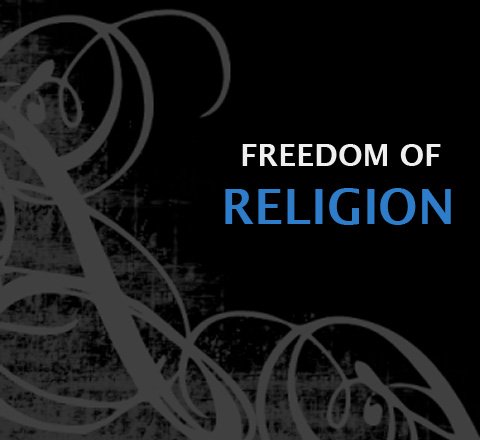
| My dad says that "freedom of religion" means Americans have the freedom to practice whatever religion they want...so long as they practice a religion. His interpretation of the First Amendment is that you are free to be religious, not free from religion. When I looked up the definition of the word "religion", though, I didn't find anything about it being mandatory to be religious in order to be part of religion. See, religion is just a fancy word for anything we do out of habit. I breathe religiously, I drink water religiously, I have sex with my boyfriend religiously. That does not make them part of my religion. Furthermore, it does not dictate that I am a member of any religion. Many people could consider believers in the evolutionary theory to be part of a religion. You could call them Evolutionists, and anyone who believes in a god-created universe would be Creationists. Evolutionists religiously believe that everything we know today started out as a tiny, microscopic spec of nothingness. Creationists religiously believe that some higher power created everything that we know. Now, just because one of their beliefs is religious in nature does not mean that they are religious people. It does not mean that Evolutionists subscribe to the scientific method for every question they have about the universe. So we cannot say that the evolutionary theory is their religion, only a part. And we cannot say that the scientific method is their religion, only a part. The same goes for creationists. So we are left with the notion that religion is not a solid, tangible thought. Religion is different to every person. We interpret and practice it differently, in some cases not at all. Does that mean that a citizen who does not participate in any "accepted" religion that he or she does not deserve to practice, or lack thereof, in the United States? No. I disagree with my father on this. It defeats the purpose to force people to be religious. How does it harm us to have an atheist or an agnostic among us? At least the're more consistent than the hypocritical, non-practising Christian. |